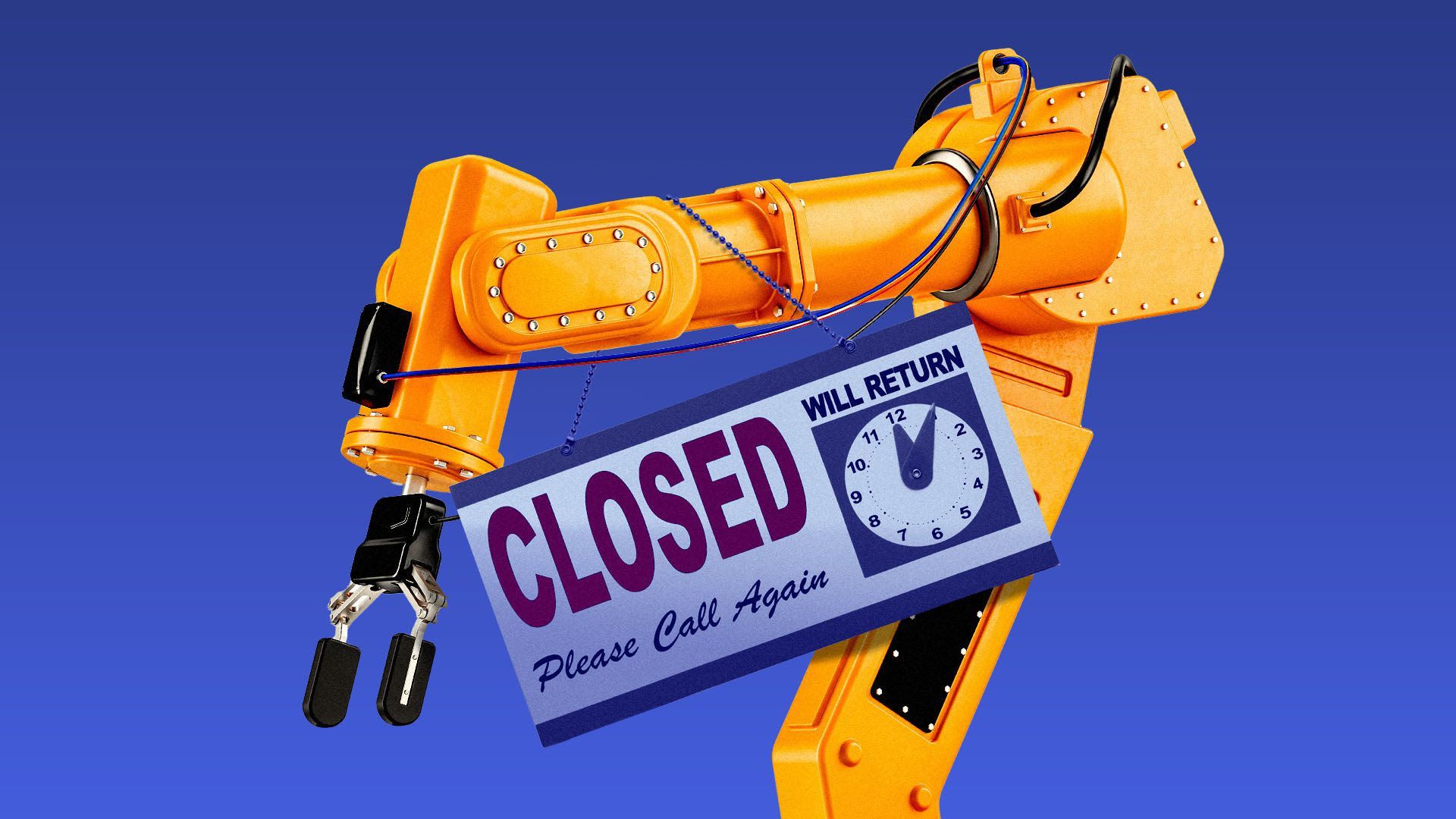Coronavirus dents tech's supply chain
Add Axios as your preferred source to
see more of our stories on Google.

Illustration: Sarah Grillo/Axios
The novel coronavirus has just begun to shut down offices and public gatherings across the U.S., but its impact on hardware and components production in China started weeks ago, and the flow of goods out of China's factories has been slow to recover.
Why it matters: The global tech economy's just-in-time supply chain has never faced a disruption quite like this one. And while many observers are guardedly optimistic, no one knows for sure yet how this crisis will play out or what sorts of shortages the industry might still face.
The big picture: Facebook says it remains short on Oculus VR headsets. Apple is reportedly short of replacement parts for iPhones, while also warning of other constraints.
- In a regulatory filing, Salesforce cautioned that "the ongoing coronavirus epidemic could potentially disrupt the supply chain of hardware needed to maintain these third-party systems or to run our business."
- Logitech told Axios that its Suzhou, China, factory is operational, as are many of its supplier factories. However, it said in a statement that "due to the availability of labor and varying timing of component supply recovery, there is potential for delays to new product introductions."
- Qualcomm's CFO said last month that the company sees "significant uncertainty" from coronavirus' impact on the supply chain, while Intel has painted a mixed picture. Uncertain demand has helped the company catch up a bit after struggling to meet PC makers' demand for chips. While that's good news for Intel, it indicates there may be supply and/or demand issues in other parts of the computer business.
Yes, but: Even as the virus spreads to more parts of Europe and the U.S., the situation in China appears to have stabilized. Apple CEO Tim Cook noted the improvements in a Fox Business interview two weeks ago, but he said they were coming more slowly than Apple had hoped, hence the company's need to lower its financial outlook.
- "It feels to me that China is getting the coronavirus under control," Cook said. "You look at the numbers, they're coming down day by day by day. And so I'm very optimistic there."
- Logitech told Axios it expects supply to reach "near-normal conditions by the end of March or April, barring a worsening coronavirus situation."
What's next: Industry insiders emphasized that the situation remains fluid, with companies having teams of people monitoring supply chain issues around the clock. "Anything can still happen," said a source at one big tech company.
- Shipping and delivery could become a new choke point in the industry's operations, especially if more regions end up in lockdowns like Italy's.
The bottom line: If China's measures against the virus continue to be effective, the supply chain might resume near-normal capacity just as demand drops, thanks to a virus-induced economic slowdown that dampens consumer and business spending.
